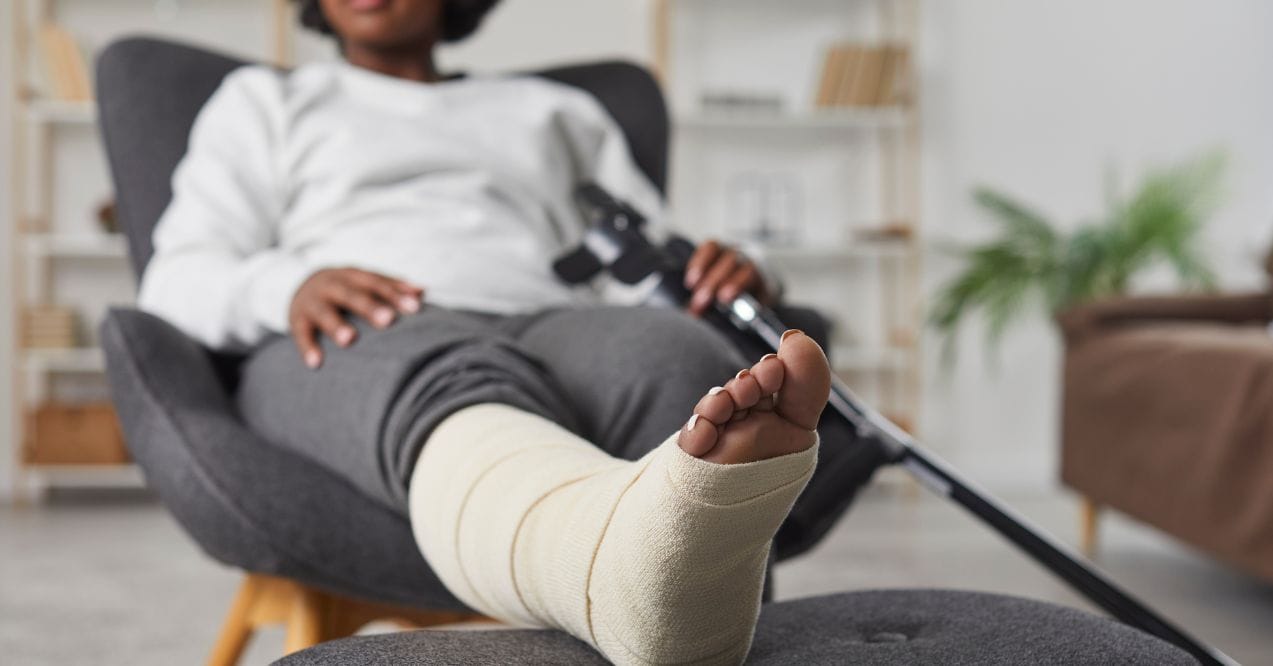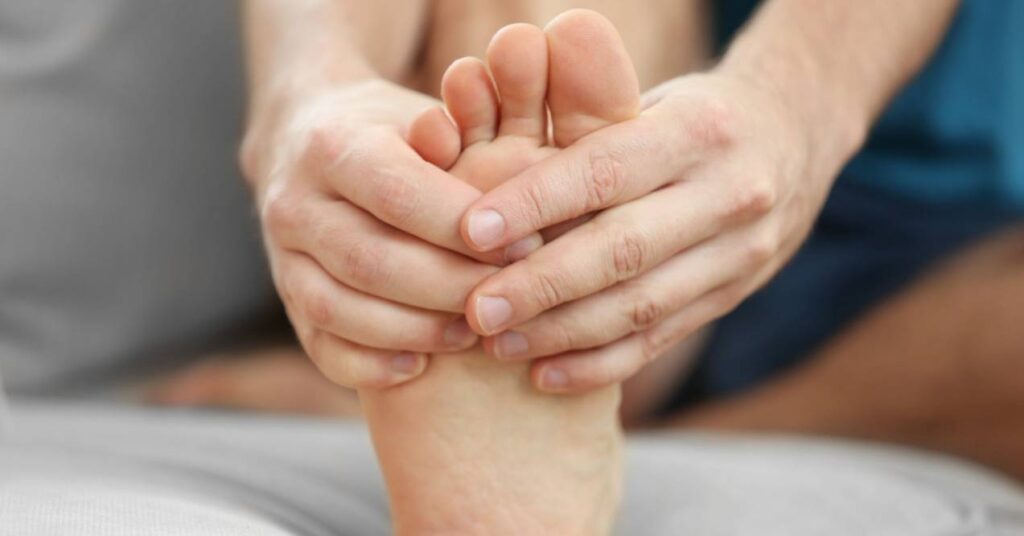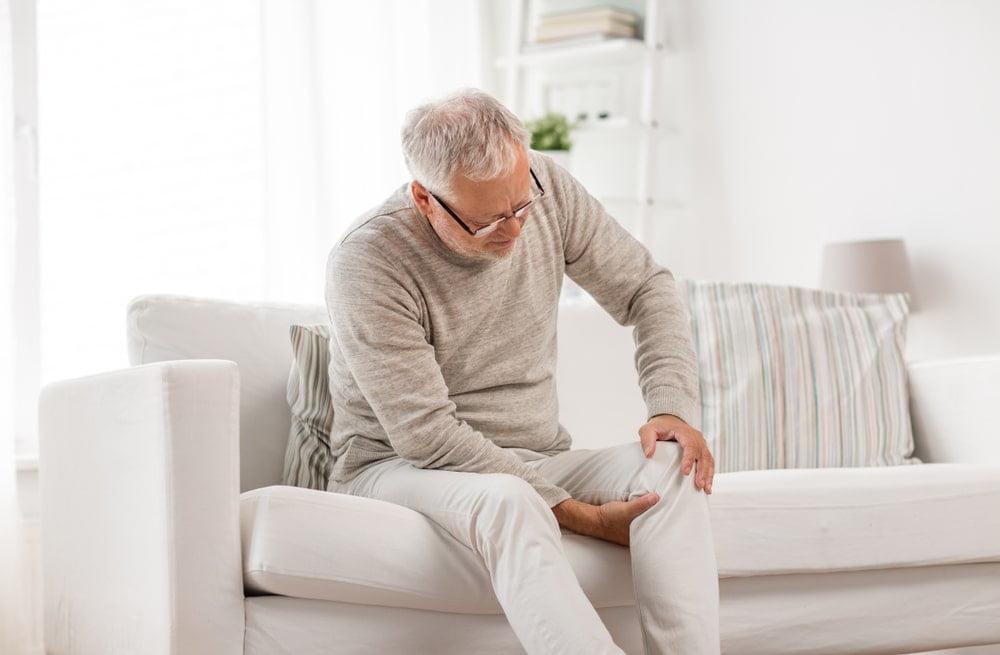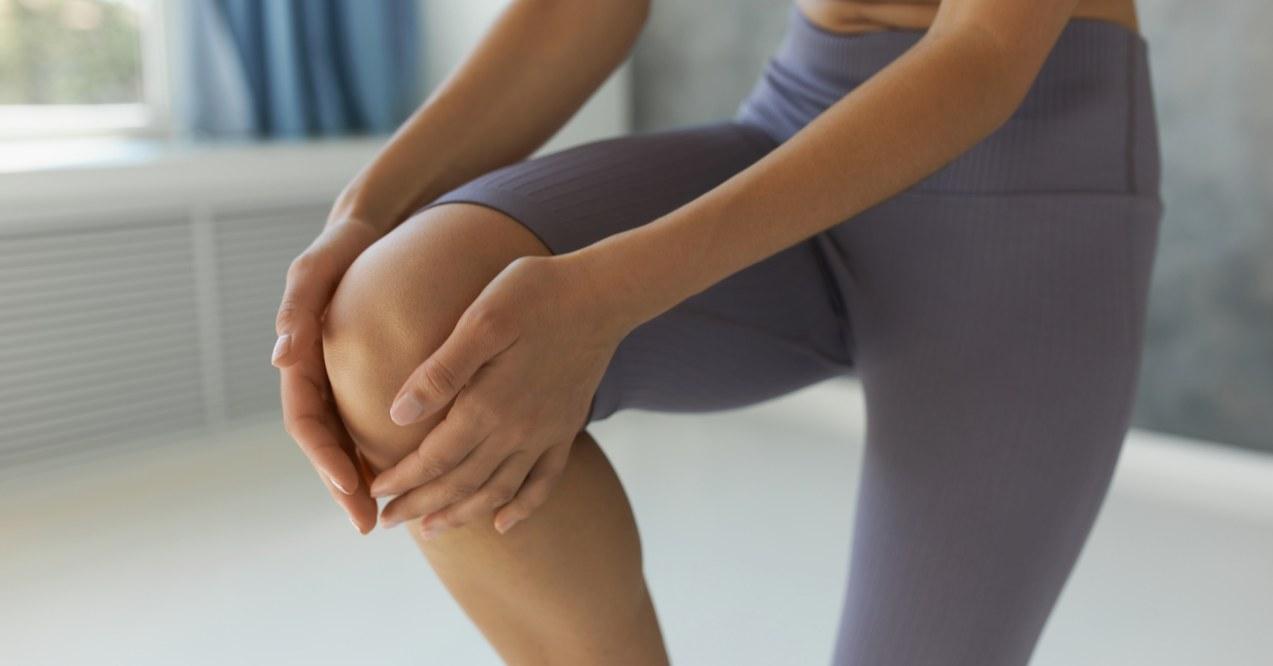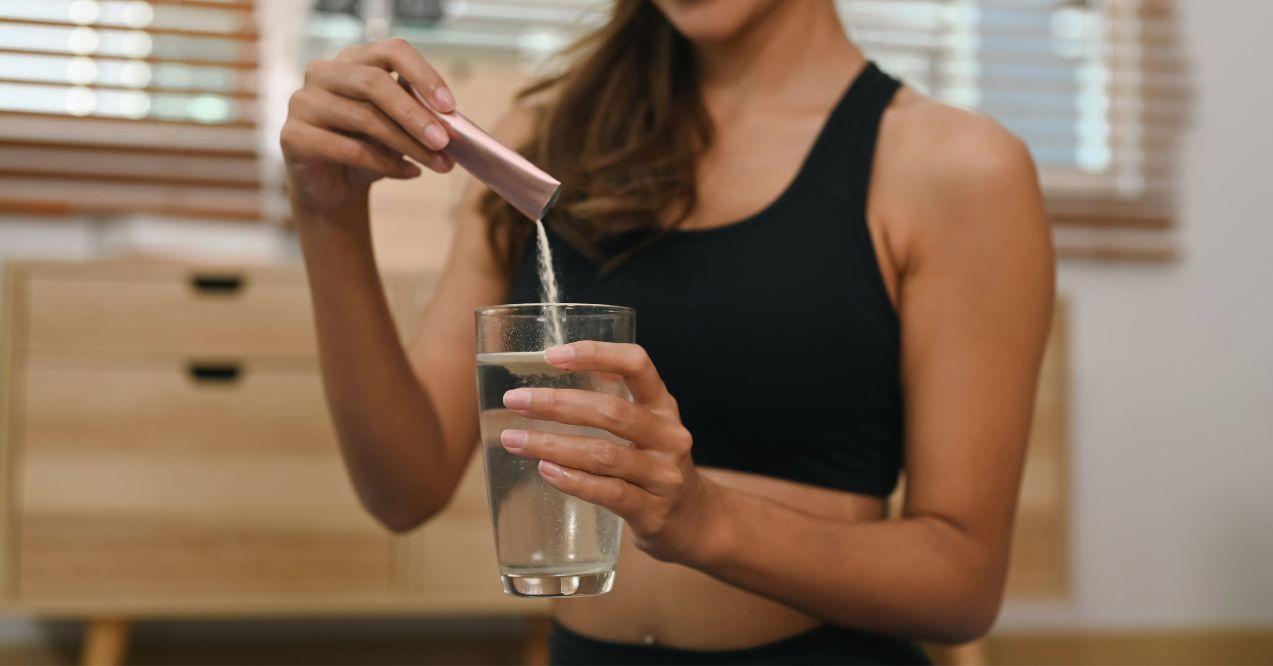Understanding Joint Pain From Dehydration
Dehydration contributes to many health conditions, including joint pain. Check this article to learn more about how to relieve joint pain from dehydration.


Most people know the importance of hydrating but don’t know they can suffer joint pain from dehydration. If you experience persistent joint pain, checking your fluid consumption is essential. According to a health report by an Ivy-League Medical School, one of the benefits of water in the body is protecting the joints. Unfortunately, most Americans are unaware of this, as 70% suffer from dehydration.
With the body constantly requiring and utilizing water resources, you must keep up by taking enough of this vital liquid to protect your joints. Your joints benefit greatly from hydration as the joint cartilage comprises 70-80% water.
To better understand how hydration alleviates joint pain, this article delves into water’s essential function in your body. This article will also discuss other options and treatments for reducing joint inflammation and improving your overall quality of life.
Understanding Dehydration
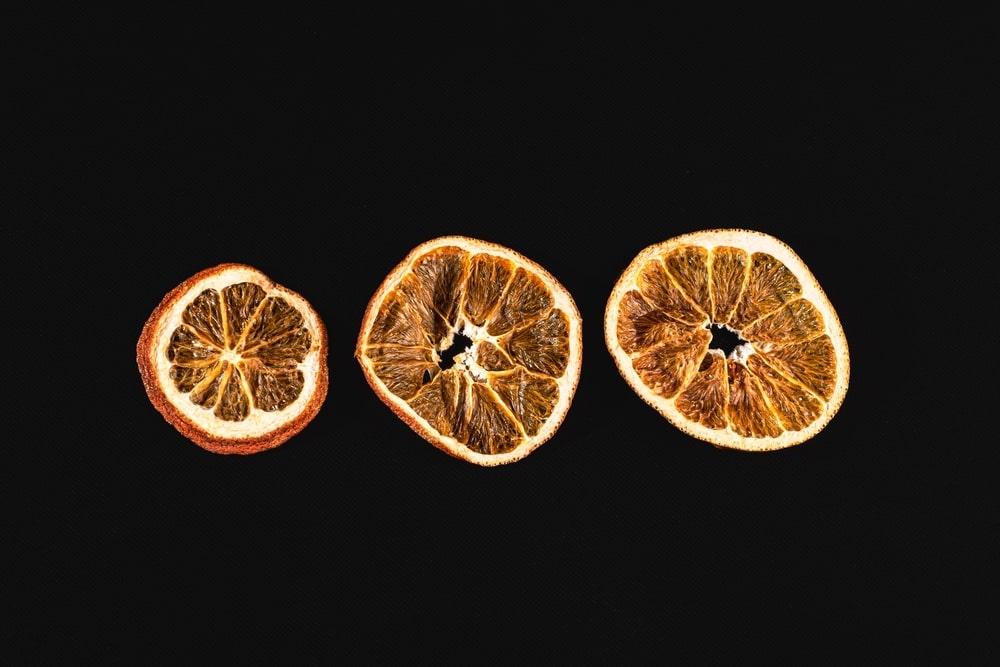
A healthy human body contains up to 60-65% of water. If the body loses more water than is getting in, it becomes dehydrated. Dehydration also results from having less water and electrolytes for the body to function. Electrolytes are the minerals that play key roles in physical bodily functions, including joint lubrication.
Apart from not taking enough fluids, there are other ways that the body can get dehydrated. The body will likely lose water during hot climates and rigorous physical activities that cause excessive sweating and sickness. You can also lose water through frequent urination, vomiting, and diarrhea. Additionally, as you age, your body’s ability to conserve water lessens, especially if you have chronic illnesses.
Older people with poor kidney processing that increases fluid loss through urination or diuretic-type medications may suffer dehydration and joint pain. If you lose water through any of those ways, it’s best to replenish through extra hydration.
Failure to hydrate leads to an imbalance in essential vitamins and minerals, triggering inflammation and other complications. How long can you survive without water? A case study of an imprisoned older man proved that a human body could stay up to two months without food. However, However, depending on individual needs, the body can only survive about three days without water.
Since your body has no way of storing water, you must constantly drink water to keep your body with a fresh supply. Conversely, the body retains water only when you have kidney disease, which causes discomfort. During dehydration, the body naturally distributes water to organs like the heart, brain, and lungs to ensure the operation of those vital body functions. This water leaves out your joints, resulting in potential joint pain.
The common symptoms of dehydration can vary depending on the severity of the condition. You may want to hydrate if you experience a dry mouth and throat, thirst, lightheadedness, fatigue, and dry skin. Consequences of severe dehydration include kidney failure, seizures, headaches, brain swelling, and even death. Dehydration is a serious condition that’s easily fixable by increasing water intake.
Understanding Joint Pain
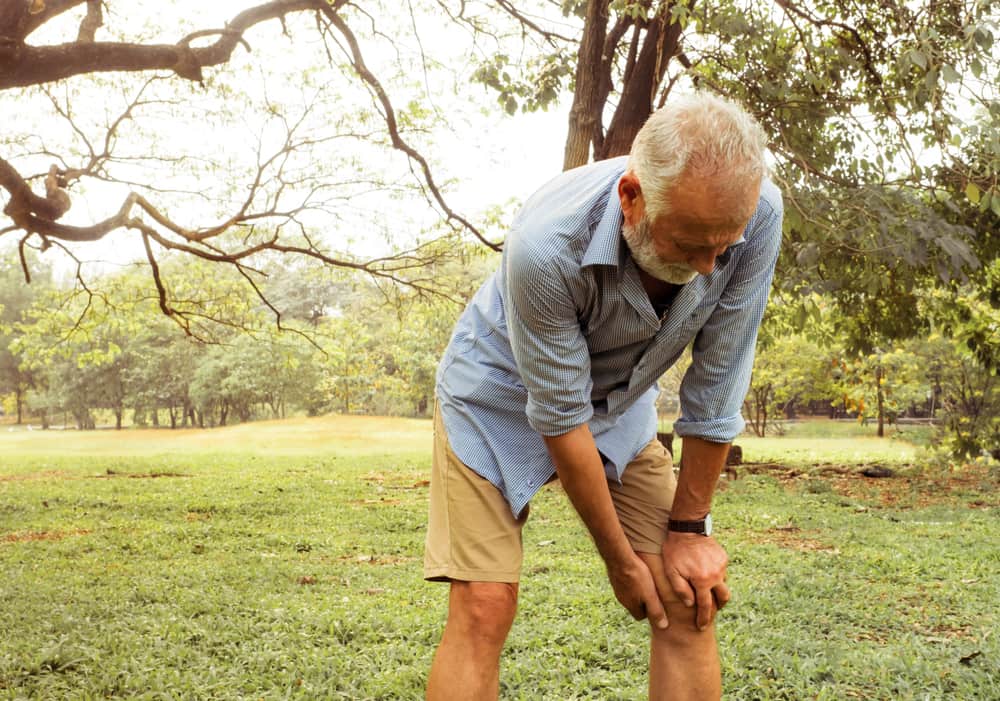
Joints are instrumental in allowing body stability, flexibility, and movement. Joint pain is debilitating because this body part is at the meeting point of any two bones. Most pain instances tend to occur in synovial joints containing fluid that helps the body flex without friction and absorb impact shock..
A deficiency of this fluid leads to articulation degeneration and inflammation. Whenever joints are weak or damaged, you will experience joint pain, and movement may be a challenge. It is a common phenomenon, especially as people age.
According to the Centers for Disease Control and Prevention, more than 50 million Americans experience joint pain. This discomfort is common in the joints you regularly use, like wrists, shoulders, knees, ankles, and hips. If you have joint pain, you will experience stiffness, discomfort, and your joints may look swollen and feel warm.
Causes of joint pain vary from genetic history, arthritis, injury, infections, autoimmune diseases, and other medical conditions. Osteoarthritis, one of the most common types of joint pain, occurs due to frequent wear and tear of the cartilage. Joint pain also results from a bacterial infection of the synovial fluid, which compromises the cartilage.
If you are not experiencing severe pain, exercising, using pain medications, and heating pads or ice packs can help alleviate the discomfort. The cartilage relies on the synovial fluid to get nutrients from the blood. Unlike other body parts, nutrients are not pumped into the synovial capsule but rely on physical movement.
For example, when flexing a joint, the synovial fluid is squeezed into spaces where nutrients and water are delivered, and as the joint unflexes, the fluid returns to the capsule carrying the nutrients that support healthy joints.
That’s why joints feel better when you exercise them and hurt more when they remain inactive. However, it’s best to seek medical advice if your signs worsen, you develop a fever, or completing routine tasks is a struggle.
A doctor can help perform a physical examination and check your medical history for a proper joint pain diagnosis. Doctors can also order lab tests and may extract a sample of the synovial fluid to ascertain the cause of your joint pain. Unfortunately, research shows that most people associate joint pain with old age and do not seek treatment.
In managing joint pain, especially in areas like the SI joint, understanding how to sit with SI joint pain is crucial for comfort and prevention of further discomfort.
Can Dehydration Cause Joint Pain?

It is important to keep hydrating as approximately 80% of your cartilage is water. The cartilage helps you move by lubricating your joints, protecting the bones from friction. Without the cartilage, physical activity would be painful and uncomfortable as the bones deteriorate, crumble, and over time, would rub against each other. Whenever joints rub, many people report a grating pain.
When you are thirsty, your body is dehydrated, and your joints need hydrating. Joint pain and dehydration are related because a dehydrated body cannot produce synovial fluid, which strengthens the cartilage and provides the cushion between joint bones. The insufficient or thin fluid then damages cartilage and worsens joint pain.
Unfortunately, when the cartilage degrades, it can be hard to repair and result in early arthritis. Researchers did a study to determine the response of healthy vs. damaged cartilage to environmental changes. They found that the damaged cartilage was more prone to rupture than the healthy one. Therefore it is essential to keep your cartilage from getting degraded by keeping yourself hydrated.
Hydration is often overlooked as a means to minimize joint pain and alleviate suffering. Sufficient hydration softens the cartilage and makes it more flexible, allowing it to operate smoothly and relieve joint pain. Moreover, hydration minimizes cartilage degradation and fosters healing during injuries.
Water also helps in the formation of protein in your muscles, which in turn strengthens your joints. Without electrolytes, your muscles weaken, and your joints will not be strong enough to perform optimally.
Dehydration increases pain sensitivity. Therefore drink plenty of water to manage your joint pain, as dehydration decreases pain tolerance. In addition, hydrating reduces inflammation and helps in pain management.
Do you ever notice that joint pain worsens during hot and humid seasons? While hot weather may trigger joint pain, dehydration is the main culprit, as you tend to sweat more. The solution is to increase your daily water intake to reduce joint pain from dehydration.
When the weather changes, your muscles tighten or stiffen. Under this scenario, you have to take more water to loosen them and reduce the pain. Carry a water bottle and take frequent sips to ensure you hydrate efficiently.
In this context, understanding how to improve joint health is crucial, not just in terms of immediate relief but also for long-term maintenance and prevention of further issues. Hydration plays a key role in this process, supporting the health and functionality of your joints. An essential part of this understanding includes knowledge of what bones make up the knee joint, as this knowledge can guide specific hydration and nutritional strategies to support these critical components of the joint system.
A Deep Dive Into Dehydration
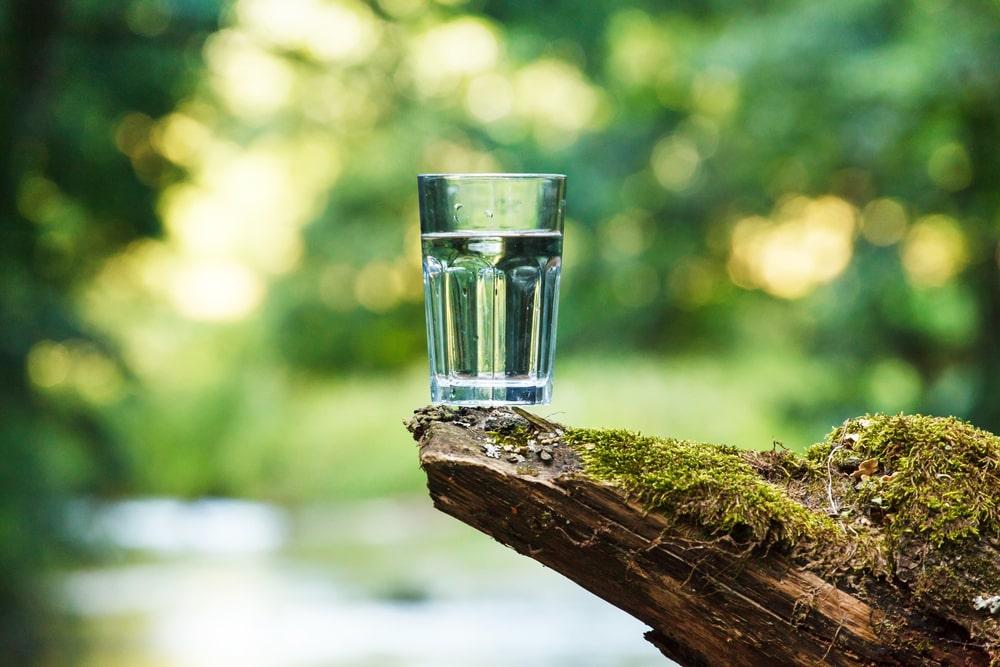
Does water lubricate joints? It does! With most of the human body comprising water, keeping yourself hydrated is necessary. Not taking enough water can adversely affect the body’s functions and cause joint pain dehydration. As a cardinal rule, adults should consume eight glasses of water daily. However, this varies depending on individual health conditions, activity level, medications, etc. Other experts recommend drinking water throughout the day, whether thirsty or not.
Another way to keep hydrated is to consume fruits and vegetables with high water content. Fruits like watermelons, pineapple, and cantaloupe can keep your body hydrated. It’s also advisable to take electrolyte-rich sports drinks to replenish lost electrolytes.
Make a habit of taking water first thing in the morning to fuel the brain and eliminate toxins. Also, increase your intake during physical exercise and hot weather. Avoid caffeine and alcohol to reduce joint pain from dehydration. One of the most obvious signs of dehydration is feeling thirsty. You can identify other signs by checking if your urine is a dark-yellow color, or if you have rapid breathing, dry skin, or sunken eyes.
Treatment Options for Joint Pain
To alleviate pain and improve joint function, you may want to try the following treatment options:
- Heat and Cold Therapy: Applying heat therapy helps to relieve pain by relaxing stiff joints. You can also use heat to warm up your joints before exercise and reduce pain. Cold therapy helps to minimize a swollen joint. You can also alternate both processes to enhance results and determine what works best. Limit use of heat or ice therapy to 20 minutes on 20 minutes off.
- NSAIDs: OTC nonsteroidal anti-inflammatory drugs are excellent choices to alleviate joint pain and work without the effects of steroidal drugs. However, NSAIDs irritate the stomach lining and cause indigestion and gastrointestinal bleeding. Examples include diclofenac, naproxen and ibuprofen. They are also available in gels and creams for topical applications.
- Topical Analgesics: Topical analgesics work by numbing joint pain. They are available in gels, creams, sprays, and patches. They contain ingredients that block pain and increase blood flow to the affected areas. Analgesics work best when used with other methods like exercise and physical therapy. Allergic reactions with analgesic use are rare.
- Physical Therapy: Physical therapy aims at improving joint mobility and reducing inflammation by working on your gait and posture. During physical therapy, your therapist teaches you to move without exerting stress on the affected joint. Physical therapists use stretching, massage, and resistance bands to improve joint function and alleviate pain.
- Assistive Devices: If joint pain makes life unbearable and you want drug-free solutions, there are assistive devices to make life easier. Examples include the TENS machine, which sends electrical impulses through the skin to relieve pain effectively. Orthopedic shoes also work by relieving pressure from the feet and providing stability. A wide variety of braces and sleeves for ankles, knees, wrists, and fingers that help support the joints and alleviate pain.
Try Dietary Supplements as a Treatment
In the realm of managing joint discomfort or improving overall bone health, dietary supplements have gained popularity in recent years due to their favorable performances. These complimentary options offer respite from stiffened joints while aiding in rebuilding efforts. Among these, vitamins for cracking knees have become a key focus, aiming to address the specific needs of individuals experiencing this condition.
Examples of such products include chondroitin sulfate derived from animal cartilage and anti-inflammatory fish oils packed with omega 3s. Moreover, taking vitamin D helps keep bones and muscles functioning smoothly. However, the ideal product for dealing with joint pain should have the following three ingredients:
Turmeric (Curcumin)
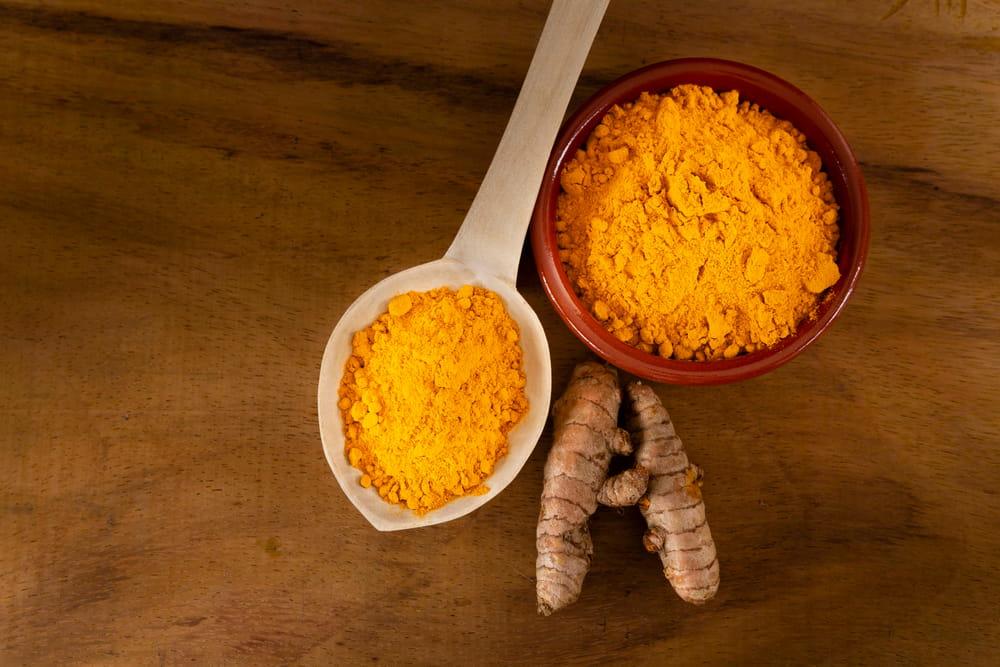
Turmeric, a staple commonly found in Indian curries, is an invaluable addition to these supplements due to its natural anti-inflammatory properties. It houses an active compound called curcumin that can be useful for alleviating joint aches while reducing inflammation. Curcumin has a great outcome in individuals experiencing joint pain and has benefits similar to ibuprofen but without any undesirable gastrointestinal side effects. Since it does not produce the same side effects that NSAIDs may cause, it is preferred by those requiring gentler treatments.
Type 2 Collagen
Type 2 collagen is a protein that allows for bone flexibility against breakage from pressure and gives structure to the cartilage. However, as the body ages, it does not produce sufficient collagen. Type 2 collagen supplements provide the cartilage with enough proteins to allow joint movement with less pain. Orally taking type 2 collagen stimulates your body to produce joint collagen to strengthen the cartilage.
Collagen is safe to consume with only minor side effects. Additionally, type 2 collagen has anti-inflammatory properties. A study on the impact of type 2 collagen supplements showed reduced pain and stiffness in the subjects. Type 2 collagen is available in pills, powder, serum, etc.
Boswellia Serrata
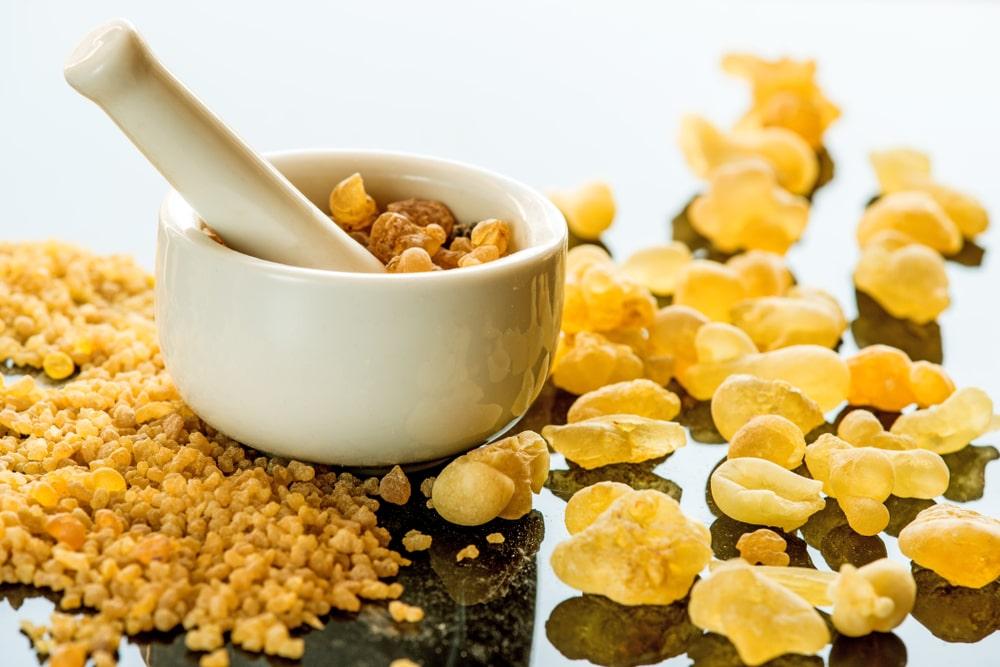
Boswellia is also called Indian Frankincense and comes from a plant containing anti-inflammatory properties. Boswellic acid hinders the formation of inflammation-causing molecules in the body. Hence, a study on 36 rats using Boswellia Serrata showed an inflammatory reduction.
Boswellia is commonly used to treat asthma, diabetes, and chronic joint issues. It is a potent painkiller that protects the cartilage from loss and reduces joint swelling. Boswellia Serrata is also antiarthritic, effectively relieves joint pain, and quickly improves function. Compared to placebos, Boswellia reduced knee pain within three months. It’s a safe product in resin, cream, tablet, and capsule forms.
Joint Support Formula From PureHealth Research
PureHealth Research offers superior natural ingredients to revitalize your joint flexibility, range of motion, and alleviate swelling and soreness. This formulation includes potent Boswellia Serrata, type 2 collagen, and turmeric to help you go about your day without fearing each motion will cause agony.
The benefits of taking this formula include a healthy immune response, joint flexibility, and reduced discomfort. The unique formula helps revitalize and replenish your body’s joint support system. You can finally enjoy healthy cartilage and better mobility. Each ingredient is evidence-backed and strategically formulated to provide significant results within a short time.
PureHealth Research is a group of skilled, innovative, and talented health experts with a mission to help you reclaim your life and joint health. The team of professional doctors includes Dr. Holly Lucille, ND, an award-winning licensed naturopathic doctor. She’s also a consultant and educator dedicated to helping people feel better. She has shared her insights on popular channels such as ABC, NBC, CBS, FOX, Lifetime, and Discovery Health.
Final Thoughts
It is not common knowledge that it is possible to experience joint pain from dehydration. Most people associate achy joints with old age and don’t seek help. Despite the endless ways that exist to alleviate this discomfort, including hydration, many still suffer in silence.
Apart from hydration, you can also improve your joint health by using available treatment options. Choosing the best supplements for bone and joint health works wonders for those looking for natural ways to improve joint function and mobility.
If you are looking for natural ingredients that are scientifically proven to improve joint health, look no further; PureHealth Research provides powerful formulas to help you improve your quality of life. Reclaim your youth!
Yes, dehydration can cause joint pain. When the body lacks sufficient water, it cannot produce enough synovial fluid, which is essential for lubricating and cushioning the joints. This can lead to stiff and painful joints.
Proper hydration is crucial for joint health as it helps maintain the water content in joint cartilage. This water content cushions bones, absorbs shock, and prevents friction during physical activities, thus reducing joint pain and inflammation.
It is generally recommended to drink at least eight glasses of water a day. However, the exact amount can vary depending on individual health conditions, activity levels, medications, and other factors. It is also beneficial to consume water-rich foods and electrolyte-rich sports drinks, especially during physical activities and hot weather.
Sign up for our Healthy Living newsletter!
Advertisement. This site offers health, wellness, fitness and nutritional information and is designed for educational purposes only. You should not rely on this information as a substitute for, nor does it replace, professional medical advice, diagnosis, or treatment. If you have any concerns or questions about your health, you should always consult with a physician or other health-care professional. Do not disregard, avoid or delay obtaining medical or health related advice from your health-care professional because of something you may have read on this site. The use of any information provided on this site is solely at your own risk.




